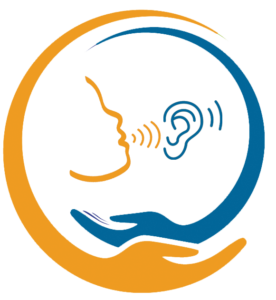Your ears constitute an intricate and fragile system enabling you to perceive the surrounding environment. Impairment of auditory function can significantly influence your overall well-being, complicating communication, music enjoyment, and social engagement.
Unveiling the Significance of the Best Electrocochleography Test for Your Ears
Electrocochleography (ECoG) emerges as a non-intrusive assessment method gauging the electrical activity within the cochlea, the inner ear component responsible for auditory reception. ECoG assessments prove valuable in the identification of various auditory conditions, encompassing
- Ménière’s disease: a condition inducing bouts of vertigo, hearing loss, and tinnitus.
- Auditory neuropathy spectrum disorder (ANSD): a disorder impacting the auditory nerve’s function in transmitting
- sound signals from the cochlea to the brain.
- Superior canal dehiscence syndrome (SCDS): a disorder associated with hearing loss, tinnitus, and dizziness.
- Drug-induced hearing loss: auditory impairment resulting from specific medications.
- Tinnitus: the perception of ringing, buzzing, or other internal sounds without an external origin.
What is an Electrocochleography Test?
A non-invasive electrophysiological evaluation known as the Electrocochleography Test assesses the electrical activity within the cochlea, the inner ear component responsible for auditory perception. This diagnostic tool aids in the identification and ongoing monitoring of various hearing disorders, including Meniere’s disease, auditory neuropathy spectrum disorder (ANSD), and superior canal dehiscence syndrome (SCDS).
Varieties of ECoG Tests
There are two main types of ECoG tests
- Extratympanic ECoG (ET-ECoG) – The most prevalent form of ECoG testing involves placing electrodes in the ear canal near the eardrum.
- Transtympanic ECoG (TT-ECoG) – This more intrusive ECoG variant entails inserting electrodes through the eardrum directly onto the cochlea.
TT-ECoG assessments are typically reserved for situations where ET-ECoG outcomes are inconclusive or when more detailed insights into the patient’s auditory condition are necessary.
What can an ECoG test tell you?
An ECoG test can provide information about the following-
Cochlear Function
By measuring the cochlea’s electrical responses to diverse sound stimuli, the ECoG test assesses overall cochlear function, identifying potential areas of dysfunction.
Hearing Loss Severity
The ECoG test gauges the extent of hearing loss in each ear, facilitating the monitoring of progression and treatment response.
Hearing Disorder Classification
Distinguishing between various types of hearing disorders, the ECoG test assists doctors in formulating personalized treatment plans based on individual patient needs.
How is an Electrocochleography Test performed?
An ECoG examination is typically conducted by an audiologist. The procedure commences with a comprehensive examination of the ear to eliminate any visible irregularities. Once the ear canals are confirmed to be clean and clear, a small electrode is positioned in close proximity to the eardrum. This electrode is linked to a computer designed to document the cochlea’s electrical activity.
Throughout the examination, participants are prompted to listen to a sequence of auditory stimuli, including clicks, tones, and speech. The computer systematically records the cochlea’s electrical reactions to these stimuli. The entire procedure typically concludes within approximately 30 minutes.
Explore Clarity- Visit Our Clinic for Expert Electrocochleography Testing!
Schedule a Appointment
What advantages does an ECoG examination offer?
An ECoG examination serves as a valuable diagnostic and monitoring tool for a range of hearing disorders. Notably, the test is objective, eliminating dependence on the individual’s responses to queries or tasks. This characteristic makes it particularly suitable for young children or individuals who may have difficulty cooperating with alternative hearing tests.
Additionally, an ECoG examination can furnish insights into the extent of a hearing disorder and the efficacy of prescribed treatments. The test is repeatable over time, facilitating the tracking of changes in hearing and monitoring responses to ongoing treatment.
Why is it important to find the best Electrocochleography Test for Your Ears?
There are several key considerations in selecting the most suitable ECoG test for your needs-
- Precision: ECoG tests exhibit variations in accuracy. It is imperative to identify a facility employing top-tier equipment and certified audiologists, recognized by the American Academy of Audiology, to ensure precision in testing results.
- Scope: The comprehensiveness of ECoG tests varies. Optimal tests encompass a wide range of sounds, such as clicks, tones, and speech, providing audiologists with richer data for a more precise diagnosis.
- Cost-effectiveness: The expenses associated with ECoG tests differ among facilities. Choosing a facility with competitive pricing and compatibility with your insurance coverage is essential.
How to find the best Electrocochleography Test for Your Ears?
For those contemplating an ECoG test, consider the following tips when searching for a suitable facility
- Seek a referral from your healthcare provider.
- Explore online directories for ECoG test facilities in your vicinity.
- Read reviews of local ECoG test facilities to gauge their performance.
- Contact various facilities to compare pricing structures and insurance acceptance.
What to Anticipate During an ECoG Test?
While an ECoG test is generally painless and non-invasive, individuals may experience mild discomfort, such as ear fullness or pressure. The audiologist will initiate the test by cleaning and disinfecting the ear canal, followed by the placement of a small electrode near the eardrum. This electrode is linked to a computer that records the cochlea’s electrical activity.
Throughout the test, participants will be exposed to various sounds, including clicks, tones, and speech, with the computer documenting the cochlea’s electrical responses. The entire procedure typically lasts around 30 minutes.
In Conclusion
The Electrocochleography Test serves as an invaluable diagnostic tool for identifying and monitoring diverse hearing disorders. Its objectivity, non-invasiveness, and ability to offer detailed insights into the severity of hearing issues and treatment efficacy underscore its significance.
Individuals encountering hearing challenges are encouraged to consult with their healthcare provider or audiologist to assess whether an ECoG test is a suitable option.
In the field of auditory health, the Electrocochleography Test assumes a pivotal role as a diagnostic tool, providing unparalleled insights into the intricacies of the auditory system. At Aural Care, Best Electrocochleography Test Clinic in Kolkata, we acknowledge the paramount importance of this test in promptly understanding and addressing potential auditory issues.
Get in Touch with us
FAQ
1. Is Electrocochleography safe?
A: Yes, Electrocochleography is a safe and non-invasive test.
2. How long does an ECochG test take?
A: The duration of an Electrocochleography test varies but is typically completed within 30 to 60 minutes.
3. Can ECochG detect all types of hearing disorders?
A: While ECochG is effective in detecting many types of hearing disorders, it may not identify certain conditions. Consult with your healthcare provider for a comprehensive assessment.
4. Is Electrocochleography suitable for children?
A: Yes, ECochG can be performed on children and is often used in pediatric audiology.
5. How often should one undergo an ECochG test?
A: The frequency of ECochG tests depends on individual health factors and the recommendations of healthcare professionals. Regular screenings may be advised for those at higher risk of auditory disorders.
About Aural Care

Aural Care is the Best Hearing Aid Clinic in Kolkata offering high quality facilities with lots of experienced doctors. We have 15 years experience in this field. Here, we offer the most comprehensive diagnostic facilities and the latest and best technology in hearing aids.
Address: GB7, 822, Rajdanga Main Road . Opp. GST Bhawan. Kol 700107
Phone: +91 98315 37979
Mail: info@auralcarekolkata.in
Follow us
Facebook: facebook.com/AuralCareCenterKolkata
Instagram: instagram.com/auralcarecenter

